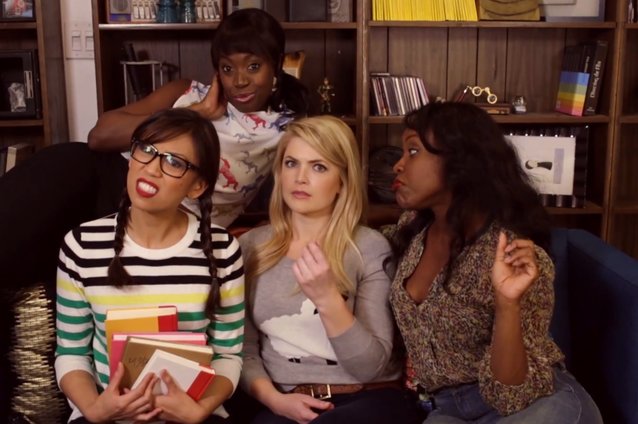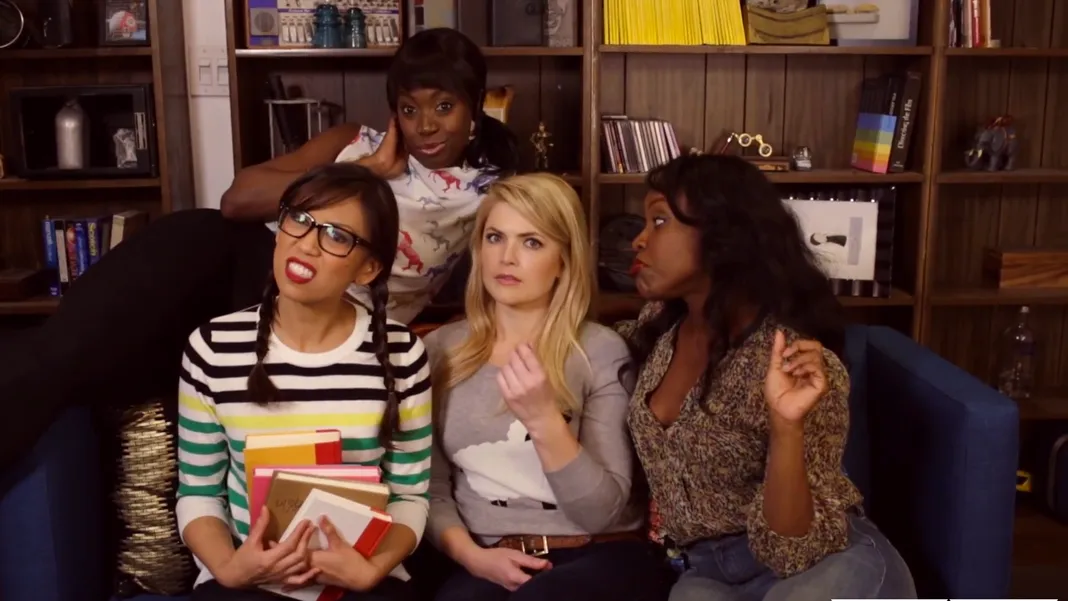 TessTubeBaby/YouTube
TessTubeBaby/YouTube
When we think of typecasting, most of us generally jump to the guys who always play nerds or the girls that always play ditzy characters, but Tess Paras recently challenged YouTubers to consider the more pervasive, and destructive, version of typecasting. In “Typecast,” her parody video of Lorde’s hit single, “Royals,” Paras and fellow actresses Haneefah Wood and Ayana Hampton, sing about the woes of playing stereotyped characters on TV.
As the video points out, minorities (especially female minorities) are generally relegated to side characters such as the “oversexed Asian” and “urban girls with flavor.” Other stereotypes include nerdy friends, sassy side characters, maids, nannies, and thugs. If you hadn’t already noticed the issue of typecasting people of color on television, it’s hard to ignore after watching Paras’s video.
The problem of typecasting comes down to representation and continuing stereotypes, which was highlighted during Lupita Nyong’o’s Oscar speech in which she talked about the moment she thought she could become an actress: when she saw Whoopi Goldberg in The Color Purple. If people of color see actors and actresses on television that they can relate to, it will lead to those viewers to feeling more represented in media, and, subsequently, more accepted.
However, the issue doesn’t end with race and ethnicity; it extends to everyone in the LGBT community as well, especially the transgender community. In honor of Transgender Awareness Week in November, GLAAD analyzed the portrayals of transgender characters on television. At least 40 percent of the transgender characters were victims, 21 percent were villains or serial killers, and the most common profession for a transgender character was a sex worker.
The real problem with misrepresentation on television is that it spreads false ideas about certain communities of people. And those false ideas promoted on fictional television shows will bleed over into real life.
It has to be said, though, there are success stories in terms of representation in Hollywood. Representation of people of color and the LGBT community may not be perfect, but as people like Paras continue to draw attention to the problem, there’s certainly hope.


